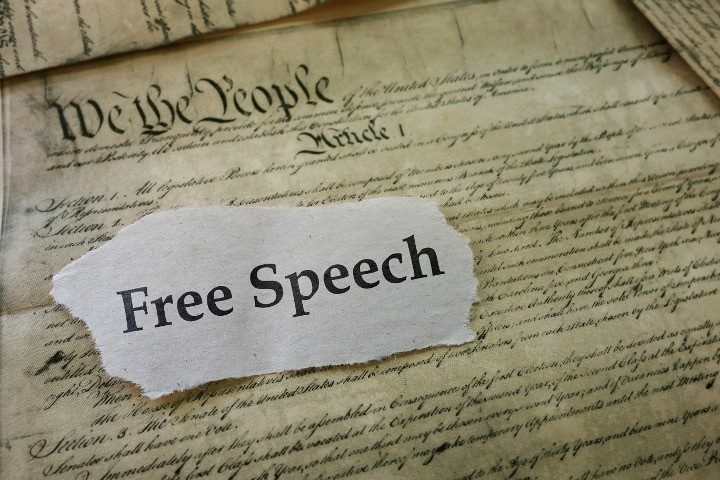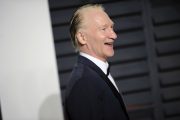
Vladimir Lenin, author of the Russian Revolution, once told a colleague that “yes, we are contradicting what we said before” — as The New Criterion paraphrased it in 2019 — “and when it is useful to reverse positions again, we will.” This could come to mind when pondering a complaint from liberal law professor emeritus Alan Dershowitz.
“Some of the same hard leftists who have been on the forefront in denying free speech rights to those deemed politically incorrect,” notes the famed octogenarian, “have now begun to champion the First Amendment in defense of those who advocate the killing of Jews.”
In particular, Dershowitz trains his sights on Harvard University and its now-infamous president, Claudine Gay, an affirmative-action hire who’s being retained and defended by her institution despite revelations that she’s guilty of repeated acts of plagiarism. It’s her copying of Lenin, however, that has raised Dershowitz’s ire.
“In her disastrous testimony in front of Congress,” writes Dershowitz at Newsweek, “President Gay swore under oath that we at Harvard ‘embrace a commitment to free expression.’”
Gay was, of course, responding to questions about whether on-campus calls for genocide against Jews were consistent with Harvard’s prohibitions against bullying and harassment. But whether or not they should be tolerated isn’t the point here. Dershowitz himself says that his preference “is to allow total free speech consistent with the First Amendment on all campuses.” The point, rather, is that the audacity of Gay’s free-expression claim is breathtaking. As Dershowitz writes:
For years now Harvard has been suppressing expression deemed by some to be politically incorrect, as reflected by its last-place ranking among American universities in protecting free speech by the Foundation for Individual Rights and Expression [FIRE]. Lectures have been canceled because of content some deemed offensive. Students have been reprimanded for microaggressions. Acceptances have been rescinded for allegedly racist or sexist speech engaged in by high school students. A former president—Lawrence Summers—was forced to resign over comments about women in engineering. An atmosphere of intimidation has permeated the campus. Freedom of expression was dying a slow death at the university whose motto is “Veritas” but whose actions have suggested “Pravda.”
This is not hyperbole. To cement a point made above, consider that in terms of this year’s free-speech rankings, “Harvard completed its downward spiral in dramatic fashion, coming in dead last with the worst score ever: 0.00 out of a possible 100.00,” reported FIRE in September. “This earns it the notorious distinction of being the only school ranked this year with an ‘Abysmal’ speech climate.”
“What’s more, granting Harvard a score of 0.00 is generous,” FIRE continued. “Its actual score is -10.69, more than six standard deviations below the average and more than two standard deviations below the second-to-last school in the rankings, its Ivy League counterpart, the University of Pennsylvania.”
In other words, Harvard was off-the-charts bad — less than zero.
Moreover, one of the Harvard acceptances rescinded was that of Parkland, Florida, school shooting survivor and pro-Second Amendment advocate Kyle Kashuv, conservatives’ answer to gun-control activist David Hogg. The highly intelligent Kashuv qualified for the school based on merit but, owing to “racist” statements he made privately when 16 years old (and for which he apologized), he received a rescindment letter stating the following: “As you know, the Committee takes seriously the qualities of maturity and moral character.” (Uh, yeah, we’ve noticed.)
Oh, by the way, David Hogg was accepted to Harvard — despite allegedly not being qualified.
As for Harvard’s character, Professor Dershowitz rightly points out that the First Amendment doesn’t apply to private institutions. Yet one might hope that as the U.S.’s oldest institution of higher learning — founded as a religious college in 1636 to train clergy — Harvard would understand that the moral law applies to everyone.
This understanding is clearly absent. Just consider that, as Dershowitz puts it, “‘Free speech for me, but not for thee’ has been the unspoken mantra of the hard Left” (at Harvard and elsewhere). “Unspoken” is the operative word. If these leftists aim to run quasi-religious institutions governed by firm (if dark) dogmas, they should say so. But there is no Truth, or honesty, in them. This is why they so instinctively lie to others: They have already thoroughly deceived themselves.
Speaking of which, Dershowitz closes on a pessimistic note, mentioning that Harvard is unlikely to improve itself due to “the continuing influence of the DEI bureaucracy over who can say what about whom, without fear of university reprisal.”
Ah, “who can say what about whom” brings us to a little-known fact so eerie it could make the hair on the back of your neck stand up. The New Criterion essay I mentioned points out that Lenin made the “Who Whom?” phrase famous. It was a “fundamental question” that must always be asked: “who dominates whom, who does what to whom, ultimately who annihilates whom. To the extent that we gain, you lose,” Leninthink states.
This illustrates the problem, too. The people running Harvard won’t improve themselves — in fact, their worldview precludes it — because authentic improvement involves movement toward Truth, something whose existence they deny. Right and wrong, fairness and unfairness, true and untrue are all just social constructs to them and are instinctively subordinated to “Who Whom?” which is just some lipstick put on the pig of group prejudice.
And, of course, people governed by “Who Whom?” cannot be reasoned with — only fought.




